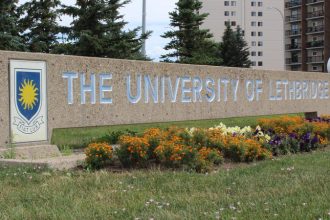Emily Sturge, a Campus Reform Correspondent, said, ‘We’re headed down a very problematic path: universities are producing a generation that can’t face the uncertainties and challenges of life.’
Several universities across the US have cancelled classes and provided spaces for students to recover from the presidential election. Critics claim these institutions aren’t preparing students for the “real world.”
George University in Washington D.C. has become a laughing stock on social media following the news that students were invited to a “self-care suite” on Wednesday to recover from the just-ended presidential election.
Defence of Freedom Institute spokesperson Angela Morabito posted on X, “Seriously, @Georgetown? We all know that it’s not conservative students who want the daycare experience. Stop coddling leftists who can’t handle reality.”
An elite also cancelled classes in response to Trump’s victory. According to The Harvard Crimson, several Math, Sociology and General Education department courses were cancelled that day, and assignment deadlines were extended to allow students more time to process election results.
Maxim Boycko, an economics lecturer, wrote via email, “As we recover from the eventful election night and process the implications of Trump’s victory, please know that class will proceed as usual today, except that classroom quizzes will not be for credit.” “Feel free to take time off if needed.”
The student newspaper noted that the situation was not different when Trump won in 2016. The institution’s reactions triggered fierce criticism from Harvard graduates and academics on social media.
William J. Luther, Associate Professor of Economics at Florida Atlantic University, posted on X (Twitter), “Fellow academics: This is nuts. Stop doing this. It makes you look like an out-of-touch, crazy person. It further erodes respect for higher ed and trust in academic research. And it’s not good for your students.”
“Do you know how many classes Harvard cancelled after October 7th? Zero,” Harvard graduate Shabbos Kestenbaum wrote on X. “Ivy League universities are incubators of antisemitism, radicalism, and intellectual and moral bankruptcy. Tax the endowments. End federal funding. Abolish DEI.”
Also, The University of Puget Sound in Tacoma, Washington, declared a whole week of “self-care” election actions to stressed students.
The institution invited students to stroll in a “walkable labyrinth” with “calming lighting and music;” “recharge” their mental health in crafts corners and arts, or make collage in a “supportive space for election processing.” The weekly schedule also included “support spaces” for LGBTQ students and students of colour to discuss their election anxiety.
The University of Oregon brought “Quacktavious the Therapy Duck,” therapy dogs and baby therapy goats “to promote well-being and lessen anxiety” for students.
Virginia Tech’s counselling centre organized school Election Day activities when students can play with therapy dogs or join a “guided stretching” class. A full day of “self-care” activities such as “restorative dialogue,” therapy dog “pawfice” hours and yoga classes was offered to the election process at the college on Wednesday.
The University of Michigan School of Social Work organized various post-election events for students, including an “empowering art therapy workshop” to “process the emotions stirred up by the election season.”
A professor at Michigan State University went viral for cancelling her class to “grieve over the election.
Borah posted a notice on social which reads, “I am cancelling class today to grieve the presidential election results” and “As a queer, immigrant woman of colour, I cannot, in good conscience, go on about my day like everything is alright.”
She added: “This is a major historical event that we are witnessing.” “I hope you take this time to take care of yourself.” She promised not to discriminate against any student based on their political beliefs.
Her page was removed from the university website. MSU told the media they were aware of the incident and addressed it internally.
Emily Sturge told the media that “Democratic elections are not traumatic, they are a privilege that not all countries allow. We’re headed down a very problematic path: universities are producing a generation that can’t face the uncertainties and challenges of life.”
She added: “These activities belong at day care, not an institution of higher learning. Life is hard. It’s full of hard work, hurt feelings, sadness, and tragedy. Our great-grandparents fought through WWII with sacrifice and grit – not with coloring books or puppy petting. They faced obstacles and opposition head on. Universities need to return to preparing the next generation to not only survive in the real world, but to thrive.”
However, some university officials are justifying the election day activities, claiming that we live in an unprecedented time of division.
The director of counselling, health and wellness services at the University of Puget Sound, Kelly Brown, stated: “I do think the rhetoric that goes around [during] the elections, with the past few election cycles, is really different from what I grew up with… we’re constantly hearing messages that are ‘If you don’t do it this way, everything is over.’”
She added: “I don’t think of it as coddling. I think of it as paying attention to the environment around us.”
It is not just universities that are under fire for Election Day activities. According to the New York Times, students at the Ethical Culture Fieldston School in New York who felt too emotionally distressed after election day were excused from classes.
The school provided counselling, and o homework was assigned on Election Day.
Comedian Jerry Seinfeld accused the school of coddling students. Two of Seinfeld’s sons once attended the school.
Seinfeld told the media, “This is why the kids hated it.” “What kind of lives have these people led that makes them think that this is the right way to handle young people? To encourage them to buckle. This is the lesson they are providing, for ungodly sums of money.”















